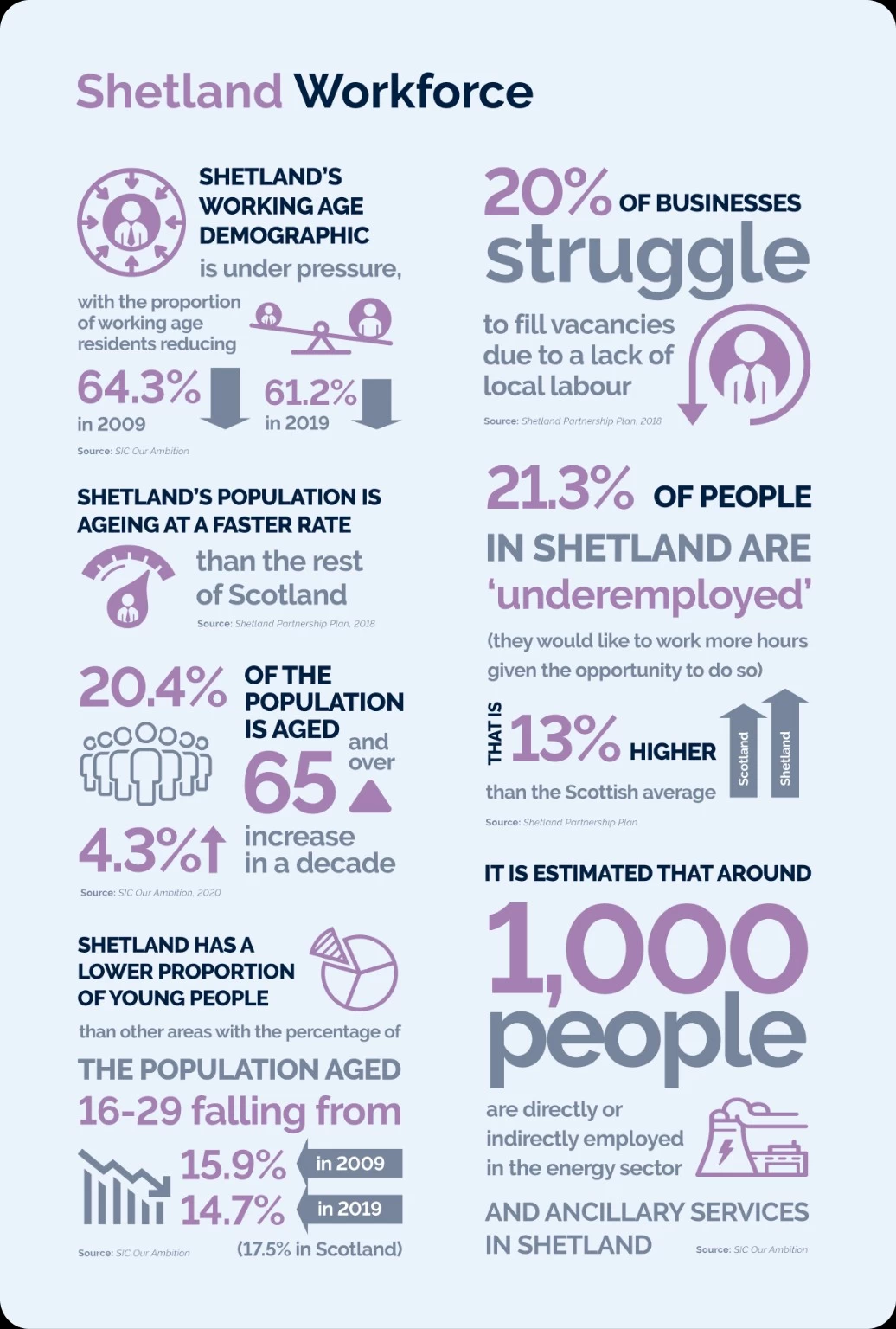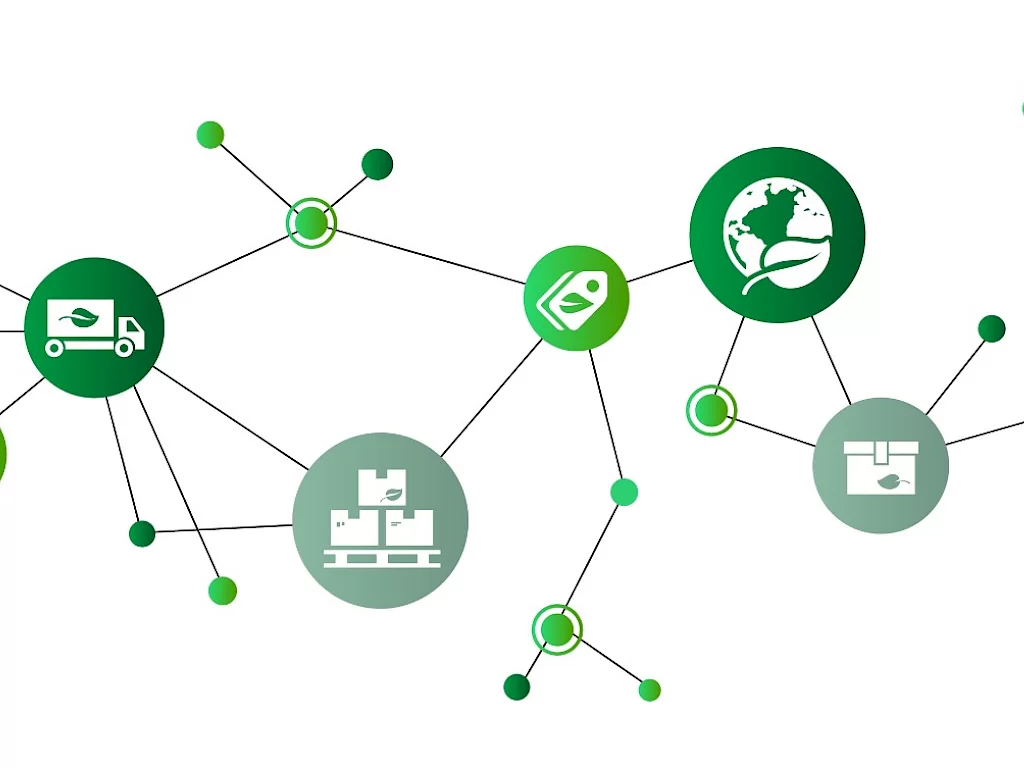The Shetland economy is particularly reliant on a few key sectors that employ large numbers of the population including fishing, aquaculture, and oil and gas. Though Shetland has a significantly lower unemployment rate compared to the rest of Scotland, there is a labour and skills shortage.
Jobs in the oil and gas industry are already declining. To ensure a just transition away from fossil fuels, there will need to be new jobs and opportunities in the emerging renewable energy sector. Locations such as Sullom Voe that are major oil and gas hubs could be repurposed for future low-carbon sectors.
ORION aims to sustain existing roles and create potentially 500 jobs by 2030.
The ORION project is working with a variety of education and skills development organisations to provide opportunities for Shetland. The innovation of the renewable sector could encourage the retention and attraction of a young working age population including graduates.
The fast growing renewable and low-carbon alternative energy industries provide a great opportunity to promote diversity and inclusion of a wide range of individuals. e.g 2019, only only 14% of energy workers were female and the workforce is not attracting sufficient young talent.
Shetland is resourced with higher education facilities with two University of the Highlands and Islands (UHI) campuses – Shetland College UHI and NAFC Marine Centre UHI. Each sees over 1,000 students enrolled every year.
Education in clean energy technologies and innovation will prepare young jobseekers and those changing careers for the opportunities that become available as Shetland transitions away from oil and gas.
Shetland organisations associated with Skills and Training:
- Highlands and Islands Enterprise
- Skills Development Scotland
- Promote Shetland
- SIC Youth Workforce Development
- Shetland Schools
Resources:
- Skills for Young People - https://www.myworldofwork.co.uk/
- Skills for Adults - https://careers.myworldofwork.co.uk/
- Businesses - https://www.ourskillsforce.co.uk/


